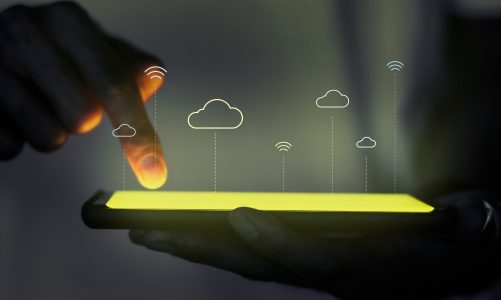Dermatologists thanks to Artificial Intelligence become Google which presented its new “smart” tool that helps someone to detect possible damage to their skin, hair, and nails, based on photos of the body taken by the user.
This tool will help in the self-diagnosis of various diseases, from acne to melanoma, and will allow patients to go faster to the dermatologist to seek treatment.
The “Dermatology Assist” presented at the annual Google I / O conference will be available later this year. The application has already been approved for use as a medical tool in Europe and has not yet been approved by the US Food and Drug Administration (FDA), according to the BBC and the Financial Times.
The new tool can recognize 288 skin conditions but does not replace the need for medical diagnosis and treatment.
It took three years to develop the special algorithm that was “trained” with a database of 65,000 images of dermatological conditions, as well as many thousands of other images of healthy skin. The accuracy of the system diagnosis is similar to that of dermatologists.
The user will log in to the Google account, “upload” suspicious photos of spots on their skin on the special Derm Assist website, and will be asked to answer some written questions about possible symptoms online. An artificial intelligence system will then analyze the images, along with the information, to present a list of possible conditions. If a case presents with extremely worrying symptoms, the algorithm will advise the user to see a doctor immediately.
Reassuring users of any concerns about the misuse of their data, Google has assured that the application will not be used to “serve” targeted ads, while skin photos will be stored only with the user’s approval and for the sole purpose of better learning. algorithm to become better in the future.
The application – which will be free – is based on previous “smart” tools of Google for detecting symptoms of certain cancers and tuberculosis. So far none of these tools have been approved as an alternative that makes the diagnosis by a specialist doctor unnecessary. They can, however, help even non-specialist doctors (eg general practitioners) make more accurate diagnoses.
According to Google, every year in its search engine is made about ten billion searches for skin, hair, and nail problems, a fact that shows the great interest of people around the world. Nearly two billion people worldwide are estimated to have more or less serious skin problems. Google reports that people only correctly diagnose their skin problems in 13% of cases.
“Skin diseases as a category are a huge global burden. People turn to Google to search for their skin concerns. “Most cases are treatable, but half the world’s population is facing a critical shortage of dermatologists,” said Dr. Peggy Boy of Google Health and the University of California, Berkeley.
Competitive Google companies such as Apple, Amazon, and Microsoft are gradually developing an increasing presence in the field of health using artificial intelligence methods, providing various services to consumers, doctors, and pharmaceutical companies.
Other innovations
Google made other announcements at the same conference. Among other things, it develops a mobile phone camera that better detects a person’s skin tone, something that primarily concerns non-whites. The “anti-racist” camera will be ready later this year.
Also, the Google Photos app will now use artificial intelligence to help the user create albums from their photos. If e.g. one does not want to include photos that remind him of a bad period of his life (such as a separation), the application will help him remove them or will help him to include in an album the photos that have similarities between them (e.g. the same sofa). Also, the user will be able to create animations by merging photos taken at a short distance from each other.
Google also announced that the upcoming Android 12 upgrade to its operating system will be “the biggest design change in the history of Android.” Among other things, it will include more features to protect the user’s data, so that he has more control over the applications (apps) he uses on his devices. For example, a light at the top of the screen will indicate whether an application is using the camera or microphone.
Google has also announced that it is developing a new video conferencing system that will allow the person you are talking to to appear in front of you in 3D in a very realistic way. The technology, which uses multiple cameras, is still in its infancy and is unlikely to be implemented any time soon.



